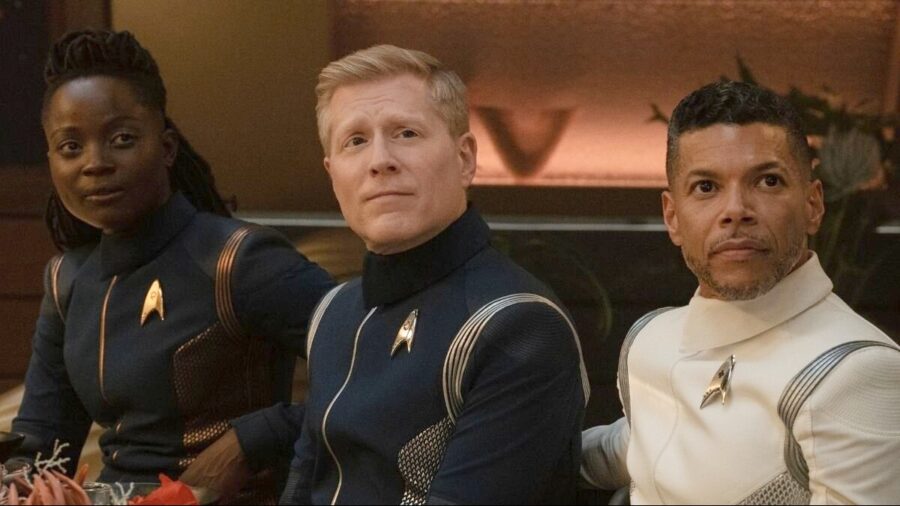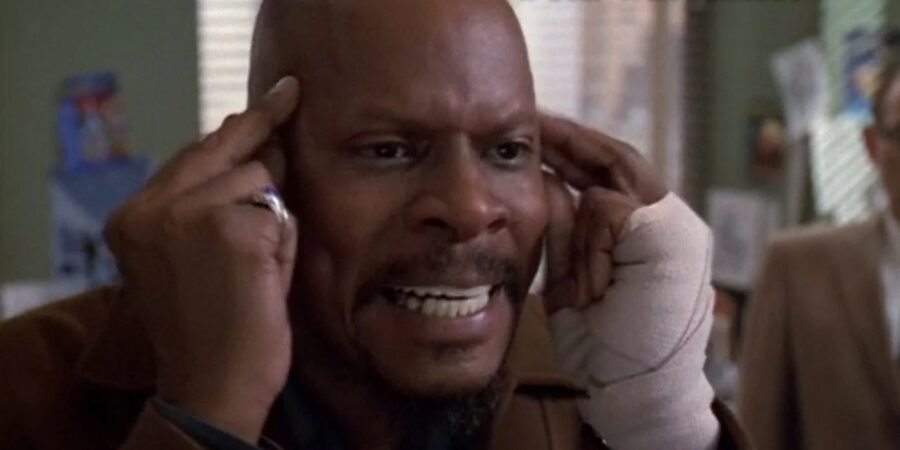Star Trek: Discovery Stars Respond To Woke Controversy
They're answering the criticisms.
This article is more than 2 years old

Ever since it premiered in 2017, Star Trek: Discovery has weathered criticisms from certain corners of the Trek fandom who claim that everything in the series is dictated by a so-called “woke” agenda. In fact, a lot of fans simply refer to the current state of the franchise as “Woke Trek.” And now, some of the Discovery stars are responding to the criticisms.
Over the weekend at Washington, D.C.’s AwesomeCon, as reported by Heavy, Star Trek: Discovery cast members Anthony Rapp and Wilson Cruz fielded a question about criticisms that the franchise had become too “woke.” Cruz, who plays Dr. Hugh Culber on the series, responded, “I do think that you know, Star Trek is always a reflection of the times in which it’s being made. And I don’t think any of us here can deny that.” Cruz spoke about the social and political divides in the United States, and the need to see beyond them and recognize each other’s humanity. But he also made it clear that he saw nothing wrong with being “woke.” “I’m so tired of this negative connotation for the word ‘woke,'” Cruz said. “You want to stay asleep? You want to close your eyes, and you know [and] have a nice slumber that allows you to imagine a world where everyone is the same, and you know, everyone loves the same way and identifies the same way? That is boring sh-t! And it’s not real.”
What is so “woke” about Star Trek: Discovery? Well, for one there’s its cast. Certain parts of the fandom bemoan the lack of cisgendered, heterosexual white men in the cast. In fact, by season 3 of the series there wasn’t a single cisgendered heterosexual white male character in the regular lead cast at all. Of course, Star Trek: Picard has a straight, white male lead as does Star Trek: Strange New Worlds. But apparently for some Trek fans, it isn’t enough for people who look like them to be represented in just about every other series ever; including in every other Trek series.
Star Trek: Discovery is likewise criticized for focusing on subjects revolving around sexuality and gender. Rapp and Cruz play a same-sex couple on the show, and season 3 introduced the non-binary character Adira (Blu del Barrio), and their partner — a trans man — Gray Tal (Ian Alexander). The fans who regret that such characters are getting significant screen time apparently yearn for the days when every female Starfleet crew member responded to danger by crying into Bill Shatner’s chest, and the Doctor M’Benga’s of the franchise weren’t given more than a couple of lines of dialogue in the entire series.

Star Trek has been heading in a progressive direction since it was heading in any direction at all. Along with featuring the first interracial kiss on broadcast TV in The Original Series, the second wave of shows like The Next Generation, Deep Space Nine, and Voyager were filled with what today would be called “woke” episodes. The premiere episode of TNG had trans women in the crew. TNG episodes like “The Host” and “The Outcast” delivered radical ideas about gender and sexuality. DS9‘s “Far Beyond the Stars” gave a heartbreaking portrayal of how not even the science fiction genre could escape racism, and “Rejoined” gave fans the first same-sex kiss in the franchise. The United Federation of Planets, we learn, doesn’t use money and the Feregni are just about the most blatant anti-capitalist caricatures one could come up with. If you don’t like what’s “woke,” that’s your business. But you might want to consider what the hell you think you’ve been watching this entire time.











